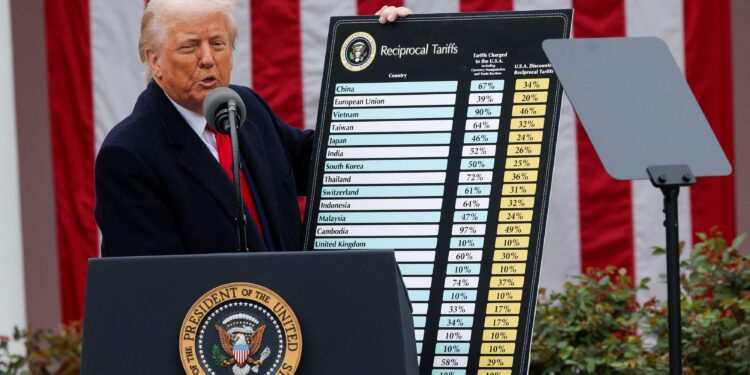Local business owners gathered in West Seattle Wednesday to share how federal tariff policies are forcing difficult decisions about inventory, pricing, and investment timing, highlighting the unique vulnerabilities facing Washington’s trade-dependent economy.
The Northwest Seaport Alliance and West Seattle Chamber hosted the roundtable at Gary’s Place arcade to document how new import taxes affecting goods from more than 90 countries are reshaping business operations throughout the region. The discussion revealed a pattern of uncertainty and rushed decision-making as companies struggle to navigate rapidly changing trade costs.
Elyssa Cichy, who owns Gary’s Place with her husband Matt, described feeling “pressure to buy some arcade equipment ahead of schedule earlier this year because we knew that it was going to go up in price with the tariffs and we wouldn’t be able to afford it at that point.” This forward-buying strategy reflects broader business behavior that could create inventory imbalances and cash flow challenges.
Other business owners have taken the opposite approach, delaying orders that could leave shelves empty and reduce sales opportunities. Dave McCoy of Emerald Water Anglers, a fly fishing outfitter, noted that consumer spending has declined as tariff discussions dominate economic news, with customers “choosing to do other things with their money, which means our business suffers.”
The business impacts come as Washington state implements tariffs that began August 7, imposing 15% taxes on goods from the European Union, Japan, and South Korea, while products from Taiwan, Vietnam, and Bangladesh face 20% tariffs. The affected items range from appliances and automobiles to clothing, footwear, and recreational equipment that many local businesses depend on for their operations.
Washington’s position as one of the nation’s most trade-dependent state economies makes these policies particularly consequential for regional businesses. With two out of every five jobs tied to international commerce, tariff-induced disruptions ripple through supply chains, employment, and consumer spending patterns that sustain the local economy.
The 20% tax on shoes, backpacks, and clothing from Indonesia, the Philippines, and Vietnam could create immediate price pressures for retailers serving outdoor recreation and casual wear markets that are significant parts of Seattle’s consumer economy. Many business owners expressed concerns about maintaining customer bases if forced to pass increased costs through to final prices.
Yale’s Budget Lab estimates that tariff-induced inflation will cost typical households up to $2,400 annually, creating broader economic pressures that extend beyond directly affected businesses to reduced consumer spending power throughout the region. This calculation suggests that even businesses not directly importing goods may experience reduced sales as customers face higher costs elsewhere.
Port officials and state commerce representatives attending the roundtable emphasized the importance of documenting local experiences for federal policymakers who may not fully understand regional economic consequences of trade policies designed primarily for other objectives. The feedback collection suggests efforts to influence federal decision-making through demonstration of economic impacts.
President Trump’s administration maintains that tariffs generate revenue for the federal government while encouraging domestic production and foreign investment. However, the Washington State Department of Revenue notes that domestic importers bear the direct cost burden, creating immediate cash flow and pricing challenges for companies throughout import-dependent supply chains.
The timing of the business impacts creates additional challenges as companies must make seasonal ordering decisions for fall merchandise while facing uncertain tariff policies that could change before delivery dates. This uncertainty complicates financial planning and inventory management strategies that typically rely on predictable cost structures.
For Seattle’s port operations, the tariff policies create complex dynamics where reduced import volumes could affect employment and economic activity while potentially benefiting competing ports or transportation modes. The Northwest Seaport Alliance’s participation in the roundtable reflects recognition that trade policy changes significantly affect regional maritime commerce.
The roundtable discussions may inform broader regional advocacy efforts as Washington state officials work to communicate local economic consequences to federal policymakers considering trade strategy modifications. The documented business experiences provide concrete examples of how abstract trade policies translate into operational challenges for companies throughout the Puget Sound economy.







